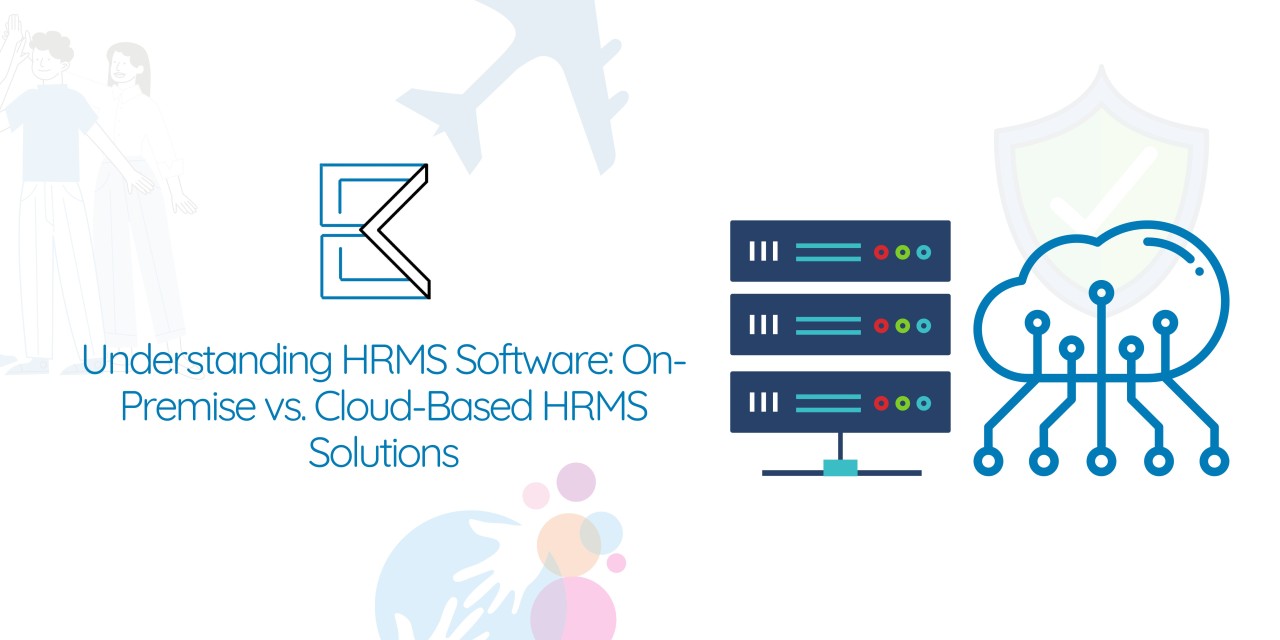Understanding HRMS Software: On-Premise vs. Cloud-Based HRMS Solutions
Human Resource Management System (HRMS) software has become an essential tool for businesses of all sizes to manage their workforce and HR functions. One of the critical decisions a business needs to make while implementing HRMS software is choosing between on-premise and cloud-based solutions. In this article, we will discuss the key differences between on-premise and cloud-based HRMS solutions to help businesses make an informed decision.
Human Resource Management System (HRMS) software has become an essential tool for businesses of all sizes to manage their workforce and HR functions. One of the critical decisions a business needs to make while implementing HRMS software is choosing between on-premise and cloud-based solutions. In this article, we will discuss the key differences between on-premise and cloud-based HRMS solutions to help businesses make an informed decision.
On-Premise HRMS Solutions:
On-premise HRMS solutions are installed and run on a business's servers, requiring the organization to maintain and update the hardware and software regularly. The HR department of a business is responsible for managing the system, which can require significant IT knowledge and resources.
The key benefits of on-premise HRMS solutions include:
- Full Control: With an on-premise HRMS solution, businesses have complete control over their data and system. The HR department can customize the software to meet their unique requirements, and data security is within their control.
- One-Time Cost: On-premise HRMS solutions have a one-time cost of implementation, and businesses do not have to pay monthly or annual fees for using the software.
- Integration with Legacy Systems: On-premise HRMS solutions can be easily integrated with legacy systems and other applications used by the business.
However, on-premise HRMS solutions also have some limitations. For example, the business needs to invest in the necessary hardware and software, which can be expensive. The maintenance and upgrades of the system can also be time-consuming and require technical expertise.
Cloud-Based HRMS Solutions:
Cloud-based HRMS solutions, on the other hand, are hosted on a third-party vendor's servers and accessed through the internet. The vendor is responsible for maintaining and upgrading the system, and businesses pay a monthly or annual fee for using the software.
The key benefits of cloud-based HRMS solutions include:
- Scalability and Flexibility: Cloud-based HRMS solutions can be easily scaled up or down, depending on the business's requirements. As the business grows or changes, the HRMS software can be modified to accommodate these changes.
- Reduced IT Maintenance: With cloud-based HRMS solutions, the vendor is responsible for maintaining and upgrading the system, reducing the IT burden on the business.
- Easy Accessibility: Cloud-based HRMS solutions can be accessed from anywhere with an internet connection, making it easy for remote teams to access the system.
However, cloud-based HRMS solutions also have some limitations. The business may not have full control over its data and system, and data security is dependent on the vendor's security measures. Integration with legacy systems and other applications may also be more challenging.
Conclusion:
Choosing between on-premise and cloud-based HRMS solutions ultimately depends on the business's specific needs and requirements. On-premise HRMS solutions may be suitable for businesses that require complete control over their data and system and have the necessary resources to manage the software. Cloud-based HRMS solutions may be a better fit for businesses that prioritize scalability, flexibility, and reduced IT maintenance. It is crucial for businesses to evaluate their options carefully before making a decision.



